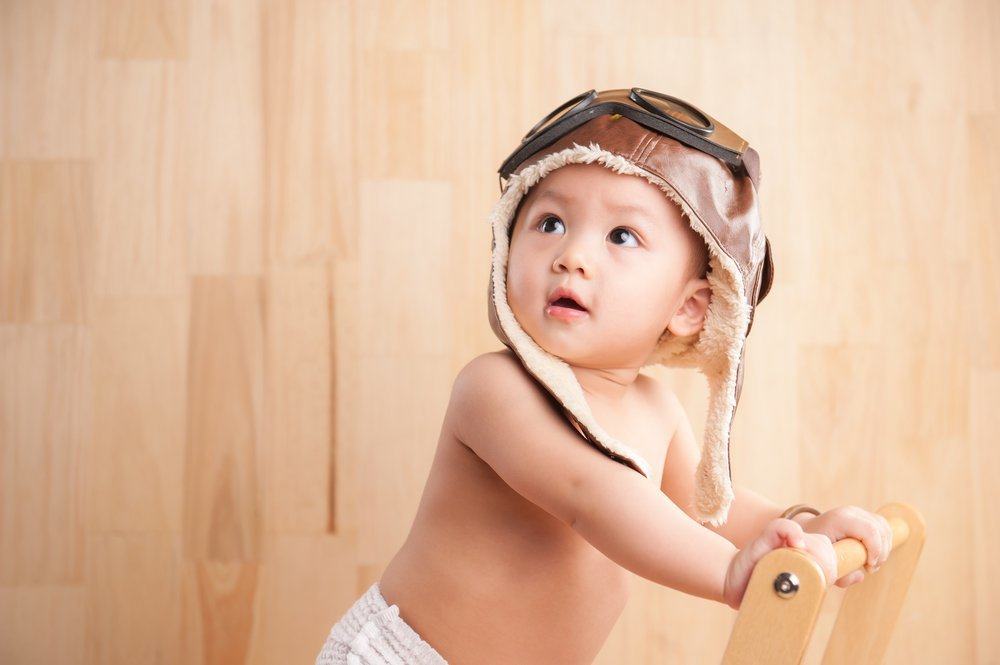Contents:
- Medical Video: Baby and Toddler Milestones, Dr. Lisa Shulman
- Development of child psychology from year to year
- Trust vs. Mistrust
- Independence vs. shame and doubt (autonomy vs. shame and doubt)
- Initiative vs. guilt (initiative vs guilt)
- Industry vs. inferiority (industry vs inferiority)
- Identity vs. identity confusion (identity vs. identity confusion)
- The stages of psychological development when a person is 20 years and over
Medical Video: Baby and Toddler Milestones, Dr. Lisa Shulman
Have you ever felt confused about the role that must be run as a parent? I want, anyway, children grow to be good individuals and accepted by all levels of society, but sometimes confused about how to respond to the challenges of the outside world. Take it easy, there are eight psychosocial stages (the relationship between social conditions and psychology) from Erik Erikson who is ready to be an introduction to parents to act.
Previously, Erik Erikson was a psychoanalytic from Germany. In contrast to the famous psychoanalytic figure, Sigmund Freud, according to Erikson, human development takes place for life, so it requires guidance and support from parents to shape children into good personalities.
Development of child psychology from year to year
Trust vs. Mistrust
This stage is the earliest stage of every human being, starting in the first year of the baby. At this stage, the child will depend a lot on mother, father, grandmother, or baby sitter, so that sufficient love is needed so that the child learns that his world will be a pleasant place to live in. Parents must pay enough attention to children, and continue to be kind and loving.
If children do not get enough love, even to experience violence and abandonment, children will form traits mistrust (disbelief) in the world. Children who have traits mistrust feel that the world is a cruel place to grow and develop.
Independence vs. shame and doubt (autonomy vs. shame and doubt)
This stage begins to develop during toddlers (ages 1-3 years). In children who feel trust (trust) towards the caregivers (can be parents, grandmothers, or baby sitter), the child will feel confident about what he is doing. Freedom is needed for children to explore themselves and their environment to develop independence. However, supervision by parents is also very necessary, such as telling you that the pan on the stove is hot, or not running when crossing on the road. Excessive supervision to use violence against children will make the child become doubtful about his own ability to survive.
Initiative vs. guilt (initiative vs guilt)
This stage begins to develop when the child starts entering playgroup or kindergarten (3-5 years old). Because children have started to talk about the wider world in their playground (can playgroup, kindergarten, or socialize with neighbors), there will be many new challenges for children. Allow children to play with many things, and encourage children to try new things. Playing is not only important for the social and emotional lives of children, but also helps children to develop their brains and mindset.
At this stage, parents must be good role models for children. Criticism must also be made to a minimum because the child will probably make mistakes, such as damaging things accidentally and spilling food. Allow children to play games that don't take long to sit around.
Children who are forbidden to explore themselves and are too punished will easily feel guilty and anxious.
Industry vs. inferiority (industry vs inferiority)
In this fourth stage, around the age of 6 to adolescence, children begin to focus on science and knowledge. For children who feel themselves unable, they will develop traits inferiority; aka feel inadequate, unproductive, and not as good as other children.
Need help from teachers in schools to direct children to activities that arouse their sense of knowledge. Give interesting lessons; for example playing with a memory card or looking for paper that contains questions. Even so, make sure that every child in the class can feel the same success between one child and another child to avoid traits inferiority.
Identity vs. identity confusion (identity vs. identity confusion)
This is the stage that makes not only children, but also parents, feeling dizzy: the puberty stage. This stage usually starts from the age of 10-20 years. At this stage, teens tend to look for their identity and "trial and error". Adolescents who succeed in getting a productive, healthy, and considered good self-identity will be formed into adolescents with healthy identities, and vice versa. In adolescents who tend to be "unsuccessful" in their trial and error period, they will be formed into a person who is "confused" without a direction of life.
Parents have an important role to continue to direct their children's desire not to fall into wrong relationships. Listen to what the child wants, if the child is interested in music, enter the child into a music lesson or take your time to teach children musical instruments.
The stages of psychological development when a person is 20 years and over
The rest of the Erikson version's development stage is intimacy vs isolation, generativity vs. stagnation, and integrity vs despair occurs at the age of 20 to more than 60 years. At the stage intimacy vs isolation, children who have become early adults will develop relationships with other people. In early adults who are successful, the sense of need and closeness with friends around will develop. However, if these early adults tend to fail, there will be a feeling of being excluded from the surrounding environment.
At the stage generativity vs stagnation, starting at the age of 40-50, they will try to do anything that can contribute to the younger generation. That could be by trying to be a role model or even having / caring for a child. In adults who feel unable to do so, they will be trapped at the stage stagnation (not developing and feeling unproductive).
Finally there is a stage integrity vs despair. This stage arises when adults become elderly people, around the age of 60 years and above. Times have changed a lot, as well as the capacity of the body and mind. Usually, at this stage, the elderly will tell their youth much to their children and grandchildren. For those who feel their youth is beautiful and productive, a sense of pride will develop, and those who feel that their youth is "wrong in slang" will feel empty and futile.
READ ALSO:
- Tips for Optimizing the Brain Development of Children in the Golden Age
- 8 Stages of Development of Eating Babies
- 6 Steps to Facing a Spoiled Child












